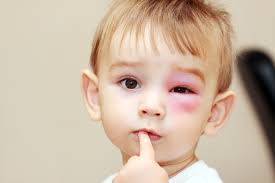Trauma can hurt babies and toddlers. Many people think that babies do not remember or notice traumatic events. But the truth is that anything that affects older and adults in the family can also affect a baby.
Trauma can disrupt many aspects of child development. If the family member is affected with trauma the baby is probably also affected.
How trauma affects babies and toddlers?
Babies and toddlers are helpless. They depend on their families and parents for a sense of safety and security. They need emotional care through loving and reassuring interactions and coping in an ongoing and consistent way. That is the way babies and toddlers develop and grow.
During their early months and years, children are sensitive to:
- Problems affecting the babies’ parents or caregivers, which may include fear and sadness.
- Separation from their parent or caregiver, for instance, absence due to injury or other factors related to the trauma. That can have a double impact: distress of the separation itself and insecurity of managing without the safety, understanding, and nurturing of their caregiver provides. It can slow the recovery process.
- What is happening in the environment , toddlers and babies are greatly impacted by distress, and the negative energy and noise. In those situation, they are not sure what is happening around them and can negatively impact babies’ growth.
- Disruption in developing a bond with parents or lack of understanding, trauma can sometimes get worse and make the bond formation even more difficult. Thus, babies tend to have stress and trauma in this situation.
If any of these things are happening, it is crucial to think about the baby’s effect. If the family member or any caregiver is affected by any trauma, the baby is probably also affected.
Reactions of babies in trauma:
When babies have exposed to life-threatening incidents they become scared. Some most common reactions of babies include
- High level of distress.
- The child may give you a shock and serious look.
- Giving the appearance of being numb or being cut-off from everything around.
- Loss of happy, engaging smile.
- Loss of eating habits
- No eye contact
- Slipping back on their physical skills.
How can you help your baby cope with trauma?
Love and care is a vital key to help a baby who has traumatized. There are some activities parents can do to help their baby to cope up with trauma:
- Seek and accept the help you need to manage your shock and emotional response.
- Reduce the initial stress by helping the child settle and to feel safe and loved.
- Maintain the proper child’s routine of sleeping, playing, eating.
- Offer a calm and peaceful environment.
- Avoid unnecessary separations from caregivers.
- Avoid expressing the child to reminders of the trauma.
Traumatic events can affect how a baby’s mind development;
It can have lifelong consequences. There are different ways to help your baby cope with trauma.
Many Blessings to you and our children. God Bless.
